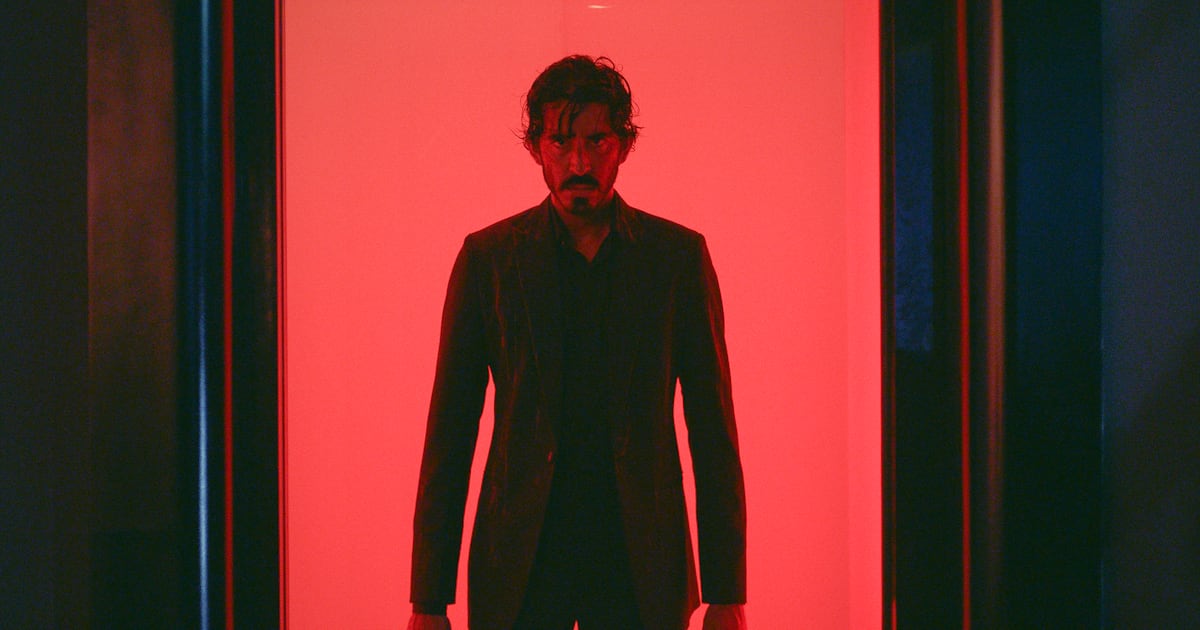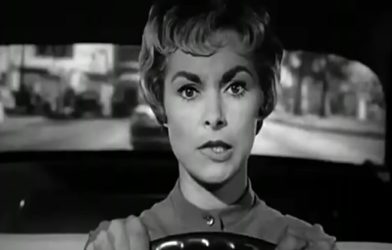MONKEY MAN
*** After bursting onto the scene in the Best Picture-winning Slumdog Millionaire, Dev Patel built himself a résumé of rom-coms and indie favorites, and even scored an Oscar nomination himself (for Lion). With that kind of clout behind him, Patel makes his directorial debut with, of all things, a knock-down, hard-edged martial arts thriller—and it’s a good one. Monkey Man doesn’t reach the peaks of greatness, but its unique style and enthusiasm for the genre makes for a compelling watch nonetheless. Storywise, we’re not reinventing the wheel: Patel stars as the Kid, a pit fighter seeking vengeance on those who wronged him, only to discover a mission more important than his personal grudge. Where the film differs from its genre forebears is in the details: The baddies are members of the Indian ruling elite who use religion as a pretext to oppress Muslims and trans people, and the filmmakers’ hatred for their cruelty and hypocrisy is palpable. The fight scenes, heavily inspired by the lurid stylism of the John Wick franchise, are unfortunately hit-or-miss; Patel, a black belt in real life, clearly has the skill to pay the bills, but the action often employs shaky-cam and POV shots that are more disorientating than thrilling. When things level out, however, the film is a marvel to behold (Patel shows deference not just to Keanu, but martial arts superstars like Iko Uwais, Tony Jaa, and the GOAT, Bruce Lee). Monkey Man isn’t the debut of a new action-film messiah, but it’s a slick ride all the same and proof that Patel has the chops, punches, kicks and occasional bites to be one of the greats. R. MORGAN SHAUNETTE. Cedar Hills, City Center, Clackamas, Eastport, Evergreen Parkway, Laurelhurst, Living Room, Lloyd Center, Mill Plain, Oak Grove, Pioneer Place, Progress Ridge, St. Johns Twin, Studio One, Vancouver Plaza.
DAMSEL
*** Millie Bobby Brown faces off against a ferocious dragon in this well-polished fantasy adventure from director Juan Carlos Fresnadillo (28 Weeks Later). Elodie (Brown), daughter of Lord Bayford (Ray Winstone), agrees to marry a wealthy prince (Nick Robinson), whose mother (Robin Wright) has other, more sinister plans for her (soon, Elodie is fighting to survive against the aforementioned fire-breather in a dark cave system). Damsel mostly operates as a showcase for Brown’s star power, but the production values surrounding her are first rate: Larry Fong’s cinematography is satisfyingly sweeping, and David Fleming’s score swells impressively. The second half of Damsel grows repetitive, but Brown is a physically and dramatically compelling presence—and the dragon, menacingly voiced by Shohreh Aghdashloo, is frightening enough to make Smaug’s scales tingle. PG-13. DANIEL RESTER. Netflix.
A PERFECT DAY FOR CARIBOU
*** On its face, this Oregon-made debut from director Jeff Rutherford is a family reconciliation drama. An estranged father, Herman (played by Portland’s Jeb Berrier), and his son Nate (Charlie Plummer, who starred in Lean on Pete) meet for a long-awaited chat and are forced into a movie-long excavatory conversation as they search for a lost child. Yet on nonplot levels, A Perfect Day for Caribou is intentionally, sometimes stiflingly disquieting—with the visual palette of Alexander Payne’s Nebraska and elliptical, nature-bound dialogues reminiscent of Kelly Reichardt’s Old Joy (maybe it doesn’t bode well that Herman and Nate choose to reunite in a Gilliam County cemetery). It’s interestingly subversive that Caribou opens with a 10-minute, stream-of-consciousness monologue by Herman. Matter-of-factly performed by Berrier, that prologue reveals a man capable of reflection and communication that he can’t muster for the rest of the movie. When Herman and Nate do come together, they seize up emotionally even as they range across prairie, high desert and forest in search of the child. This hunt includes one unforgettable slow zoom, which lasts a full minute as Herman and Nate jog out toward the horizon, bodies appearing to shrink as they run. Love is hard for men like this, but they’re good at disappearing. NR. CHANCE SOLEM-PFEIFER. Amazon, Apple TV, Google Play, YouTube Movies.
INDIGO GIRLS: IT’S ONLY LIFE AFTER ALL
*** Moviegoers were blindsided last summer by Barbie, a blockbuster enriched by a banging soundtrack featuring an Oscar-winning ballad, a Ryan Gosling showstopper, and a fresh take on a forgotten folk song: Brandi Carlile and her wife Catherine’s rendition of the Indigo Girls’ 1989 classic “Closer to Fine,” which resonated with a wave of ‘90s-era college radio and music festival fans. Directed by Alexandria Bombach, It’s Only Life After All is a time warp through their career and personal lives delivering nostalgic reflections. Bombach allows the Indigo Girls, Amy Ray and Emily Saliers, to narrate their journey without the interjection of others’ opinions, which they seem to have had enough of. Ray once expressed her frustration with critics and fans in a Charlie Rose interview, saying, “They can understand Rage Against the Machine but can’t understand the Indigo Girls.” Taking up the cause, the documentary dismantles the myopic views of the haters, offering a deeper understanding of the Indigo Girls’ activism and music. Watching them struggle through the decadeslong process of answering questions about their identity that they haven’t even processed themselves is heartbreaking, but the film reaffirms the enduring power of finally speaking your truth. NR. RAY GILL JR. Bridgeport, Cinema 21. April 10 only.
SHAYDA
*** Writer-director Noora Niasari’s bilingual (Farsi and English) narrative feature debut chronicles the hurdles an Iranian mother faces after fleeing an abusive marriage. Inspired by Niasari’s personal experience, the tale is told through the eyes of Shayda (Zar Amir Ebrahimi) and her daughter Mona (Selina Zahednia), who have escaped the torment of Shayda’s marriage—she now lives in an Australian women’s shelter—only to endure threats from her ex-husband and feckless institutions. Shayda’s struggle is contextualized through her relationship with Mona, who cannot understand their circumstances, but is beautifully played by Zahednia (even with line readings that aren’t always crisp, she displays a venerability beyond many of her precocious peers). Unflinching in its portrayal of battle lines defined by gender and tradition, Shayda refuses to force-feed a message to its audience, confronting you with a harsh reality that’s already staring you in the face. PG-13. RAY GILL JR. Living Room.
PROBLEMISTA
** The best scene in Problemista ends with a bullet. Anguished by overdraft fees, Alejandro (Julio Torres) begs a Bank of America employee to acknowledge the injustice of his plight. Her response? She whips out a pistol, shoots him, and declares, “I stand with Bank of America!” Savagely funny and direct, that punchline is the opposite of everything else in Problemista, a satire of immigrant dreams that parries when it should stab. Written and directed by Torres (co-creator and star of Los Espookys), Problemista finds Alejandro in New York struggling to become a high-concept toy designer—his ideas include a stairs-hating Slinky—but Hasbro keeps rebuffing him. If he doesn’t want to be deported home to El Salvador, he needs a work visa, but the only person who will sponsor him is a deranged art critic (Tilda Swinton) curating an exhibition of her cryogenically frozen husband’s paintings of eggs (quirkiness alert!). Torres is a delightfully nimble performer, but Swinton’s Elizabeth is surprisingly staid, lobbing cruel, witless jokes at service-industry workers as if she were auditioning for a Z-grade Seinfeld ripoff. Problemista seeks to cultivate an aura of absurd wonderment, but its stock characters and forced whimsy are so wearying that when Alejandro is offered putatively soul-killing work as a paralegal, you want to cry, “Take the job, kid! Creativity ain’t all it’s cracked up to be.” R. BENNETT CAMPBELL FERGUSON. Cinema 21.
THE BEAST
* Gabrielle (Léa Seydoux) has a bad feeling about this. In fact, her self-professed sense of impending doom is so strong that it crosses three lifetimes—played across The Beast in genre-hopping narratives from 1910, 2014 and 2044. French auteur Bertrand Bonello (House of Tolerance, Saint Laurent) lays out the timelines as three distinctly styled segments. In the first, a loose adaptation of Henry James’ The Beast in the Jungle, Gabrielle’s former confidant (George McKay of 1917) returns with falconlike intensity to strain her marriage in Belle Époque Paris. In the second story (2014), unmistakably inspired by the murders of incel killer Elliot Rodger, Gabrielle is an aspiring Hollywood actor upon whom McKay’s hateful character preys. The third imagines a dystopian future where artificial intelligence purifies humans of inherited trauma, but struggles to do so for Gabrielle, given the pain of her previous lives. If this sounds like “throw everything at the wall” creativity to you, you’d be right; if it also sounds like Gabrielle is a cipher of a character who suffers for narrative sport while possessive men and a possessive cosmos wield her repetitive fate, you’d be even righter. Bonello is known as a provocateur, but The Beast is a thuddingly dense Madama Butterfly pastiche that dares only to use an actor of Seydoux’s caliber as a construct for two hours and 25 minutes. NR. CHANCE SOLEM-PFEIFER. Cinema 21.









